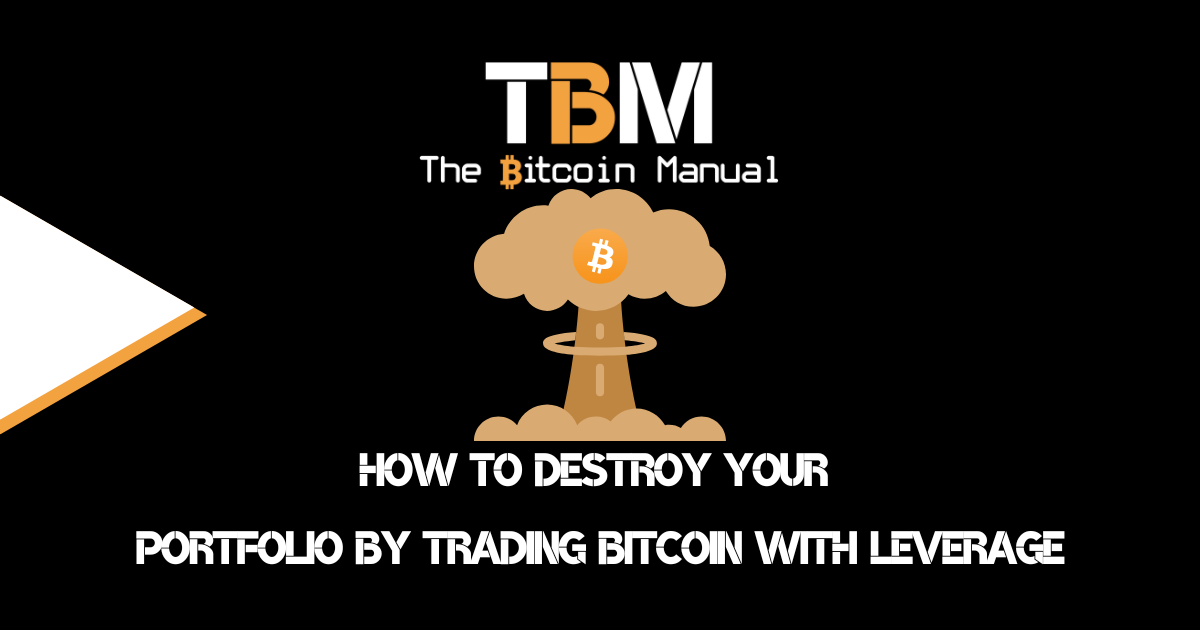2017 marked the year many of the big-name centralised lending platforms launched, and the bridge between traditional finance and bitcoin got a little shorter. Services like Celsius, BlockFi, Nexo and many more have grown to considerable sizes over the last five years and have attracted many customers looking to earn a yield on their bitcoin. One of those to join the market later was Hodlnaut, the Singapore-based digital asset platform launched in 2019. Hodlnaut offered high-yield bitcoin accounts as well as bitcoin lending contracts. The platform has amassed over $500 Million of Digital Assets under Management and continues to grow.
Despite these impressive figures, using custodial services always comes with risk. You’re handing over ownership of your bitcoin to the company, and you have to trust they will honour your redemptions when you want to remove your account. You are at the mercy of these platforms, and should they declare insolvency, your coins could be at risk.
Removal of counter-party risk
Bitcoin might be a pristine asset, but it doesn’t protect you against counter-party risk once you hand over the signing rights to that bitcoin. CEFI platforms like banks and financial institutions hold bitcoin on your behalf, and all you have is a paper claim against that bitcoin, which you may or may not be able to redeem sometime in the future.
To compensate you for that risk, these platforms offer you an attractive yield, but they don’t exactly tell you where it’s coming from; that’s their secret sauce, or so they claim. In my personal opinion, I don’t think you would be all that chuffed to lend out your bitcoin if you knew where they were putting it and how they were using it to get that yield.
The idea of leaving money with an institution is nothing new, we do it all the time with our fiat money, so it only seems natural to do it with your bitcoin, right?
Wrong, As soon as you give up ownership of your coins, you’re at the mercy of someone else. As we learned from hacks, defaults and protocol failures throughout the years, this is a precarious position to be in as a retail investor; even in the best of times and in the worst of times, like bear markets, it can be the worst place to leave your capital.
In addition, creating ties to your identity and bitcoin can leave you exposed in the future, so limiting that footprint by not using centralised services could be a good step in improving your opsec.
If you feel like it’s time to move on from Hodlnaut, be that to take custody yourself or use a different service provider, then here’s how to get your account terminated.
Clear your account first
I think it goes without saying before you even think about deleting your Hodlnaut account, you should log in to your account and give it a once over and review if you have any funds in it or pending interest payments.
If you do have funds in the Hodlnaut Interest Account, you’ll need to remove your funds from the interest account first; it’s best to do it on the first day of a new week since your interest would be paid in, too, and you can pull the entire balance instead of waiting for your next interest payment.
If your funds are ready to be taken off Hodlnaut, the next step would be to generate a new public key on your hot wallet or cold storage device and select the withdrawal function. Once you’ve requested a fund withdrawal, it can take 24 – 36 hours for it to clear and be sent to the public key you provided.
Now that your funds are SAFU in your control, it’s time to start operation clean-up.
If you’ve purchased bitcoin via Hodlnaut directly, you may have a card attached to your account; if you cannot remove your card within the app, make sure you add that you want your card details removed along with the account when you sent your account removal email.
How to delete your account with Hodlnaut
- Open your email account that is registered with the application.
- Now compose an email and enter the email address to info@hodlnaut.com
- On Subject Type “Request To Delete My Hodlnaut Account”.
- Now, write an email regarding deleting your account.
- Type your user-id email address, and provide the reason for deleting your account.
If you need help formatting your deletion email, you can copy the template below, swap out your details and ping it off to Hodlnaut.
Dear Hodlnaut Team,
I have an account in your database attached to the following email address or phone number. I have decided not to use the account any further. Therefore, I request that you kindly delete my account from your database and wipe all notifications, if any.
From:
Your Name.
Email Account.
Phone Number.
Send your email and wait 48 – 36 hours to get any response. If successful, you should receive an email from their helpdesk stating that your account has been closed, and you can move on to deleting any other traces of the service.
Laws around customer data
Now we understand what the laws entail, You can delete your account by contacting Hodlnaut via email, and they have to honour your request to remove your account.
- In your email, state the reasons why you want your data/account deleted – Note that under GDPR or CCPA, you don’t need to provide a reason for your request.
- Provide all the relevant information regarding your account with Hodlnaut.
- Mention the Law under which you make your request – GDPR or CCPA
- Notify Hodlnaut of the penalty for non-compliance – A $7,500 fine under CCPA and 4% of annual turnover under GDPR.
Note: Removing your account or access to it does not mean that your data has completely been removed from their system; as a financial institution, Hodlnaut is required to keep customer data on hand for a certain period before it can be disposed of officially.
Cleaning up remaining connections with Hodlnaut
Once your account is shut down and you want to break ties and go cold turkey entirely, you could finish off your spring cleaning by:
- Deleting the app from your Smartphone or tablet
- Deleting the bookmark in your browser or home screen
- Unsubscribing from their email list
- Unfollowing their social media accounts
Remember, if you remain any form of marketing communications, they might be able to reach you through either your email address, push notifications if you still have the app, or social media or email and social media account targeting ads. If you want to cut ties completely, these steps are vital.
Cleaning your coins
If you’re removing your bitcoin from Hodlnaut, the UTXO they will generate on your behalf can be subject to certain restrictions.
You cannot send these coins to
- A “Mixing” service such as a join market couples different transactions together in an attempt to obfuscate the source of funds.
- To Peer-to-peer and other exchanges which do not perform Know Your Customer (KYC) screening as part of their onboarding process.
If you are looking to break ties with the coins you remove from Hodlnaut, then your best bet would be to generate a new public address, and remove your coins. Once the coins are in your possession, you can then proceed to use a mixing service to break the ties that Hodlnaut has with your identification and the UTXO generated.
Not your keys, not your coins
It’s fun and games playing around with a small amount of your stack and trying out these services. Still, keeping any considerable amount of capital in services you cannot control or exit from without permission from third parties might not be priced into the interest rate you’re getting.
In most cases, the risk you’re taking is higher than the reward. As more pressure comes from regulators and these centralised services become attractive honeypots for hackers, it leaves you open to various attacks.
If you’re ready to take control of your funds, then the safest way to store your bitcoin will always be in an air-gapped cold storage device.
Are you a recovering yield hog?
Have you finally realised that the risk you have to take to earn a return on your bitcoin is not worth it? Are you looking to move to a more safe and secure method of holding your wealth in digital form? How have you gone about it? What got you to change your mind?
Let us know in the comments below; we’re always keen to hear about your experience and learn from our readers.




